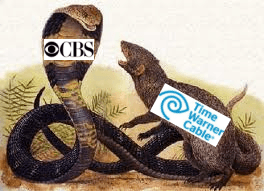
Sen. Schumer
That new Internet-enabled television in your living room may be allowing virtual Peeping Toms to watch and listen to you because manufacturers never bothered with adequate security measures to keep unwanted guests out.
Sen. Charles Schumer (D-N.Y.) is calling on major television manufacturers to create a uniform security standard to stop the hacking before it becomes widespread.
A security research group recently highlighted security flaws in so-called “smart” TVs that make it simple for anyone to hack the television’s internal microphone and embedded camera originally designed for video chatting. The security group warned that almost anyone could begin eavesdropping within minutes of identifying a vulnerable television — most lacking any significant security measures to prevent unauthorized video spying.
“You expect to watch TV, but you don’t want the TV watching you,” said Schumer. “Many of these smart televisions are vulnerable to hackers who can spy on you while you’re watching television in your living room. Our computers have access to firewalls and other security blocks but these televisions do not and that’s why manufacturers should do everything possible to create a standard of security in their internet-connected products.”
The security vulnerability exists because many modern “smart” TVs are now connected to the Internet. To enhance the social experience, many of these televisions are equipped with microphones and unobtrusive video cameras similar to those found in a laptop. But many consumers do not realize these devices could allow anyone on the outside to activate the camera and microphone unbeknownst to the owner and quietly watch and listen in on what is happening inside a home.

Particularly vulnerable
Samsung televisions starting with the 2012 model year were called particularly vulnerable to hacking. Researchers found they could not only access cameras and microphones, they could also tap into the television’s web browser, steal user accounts and passwords, and redirect consumers to hacked websites designed to capture personal information including credit card numbers and bank account information.
Some manufacturers have not taken responsibility for the security flaws, suggesting worried consumers put black electrical tape over the camera or unplug the TV when not in use. Samsung has issued patches for many of the affected devices and promises more changes in future models.
Schumer called current measures inadequate and too often leave the burden solely on consumers. He wants an industry security standard implemented that includes a firewall and other security measures that keep unwanted visitors out without forcing consumers to disable features they paid to have on their television.
[flv width=”368″ height=”228″]http://www.phillipdampier.com/video/WTEN Albany Schumer Says TV Could Be Watching You 8-4-13.mp4[/flv]
Your Internet enabled television set may be vulnerable to hacking. WTEN in Albany reports Sen. Schumer wants manufacturers to create a uniform security standard to keep unwelcome visitors out of your living room. (2 minutes)


 Subscribe
Subscribe A Wall Street analyst has urged Time Warner Cable’s competitors to deny promotional pricing to new customers switching providers because of the CBS blackout.
A Wall Street analyst has urged Time Warner Cable’s competitors to deny promotional pricing to new customers switching providers because of the CBS blackout. DirecTV is among the first to express solidarity with its cable competitor, issuing a statement last weekend:
DirecTV is among the first to express solidarity with its cable competitor, issuing a statement last weekend: Analysts were surprised at the premium price AT&T agreed to pay when it announced last month it was acquiring Leap Wireless — owner of the Cricket brand prepaid cell phone service — for $1.2 billion plus assuming $2.8 billion in net debt. But newly released documents show AT&T will win significant tax concessions allowing it to shelter hundreds of millions in revenue from the tax man.
Analysts were surprised at the premium price AT&T agreed to pay when it announced last month it was acquiring Leap Wireless — owner of the Cricket brand prepaid cell phone service — for $1.2 billion plus assuming $2.8 billion in net debt. But newly released documents show AT&T will win significant tax concessions allowing it to shelter hundreds of millions in revenue from the tax man. In May, as T-Mobile closed in on its takeover of similarly sized MetroPCS, things changed. AT&T ended up being the sole bidder for Cricket, offering $9.50 a share.
In May, as T-Mobile closed in on its takeover of similarly sized MetroPCS, things changed. AT&T ended up being the sole bidder for Cricket, offering $9.50 a share.


